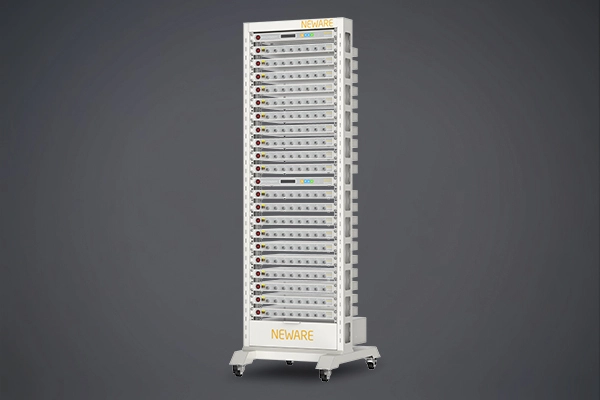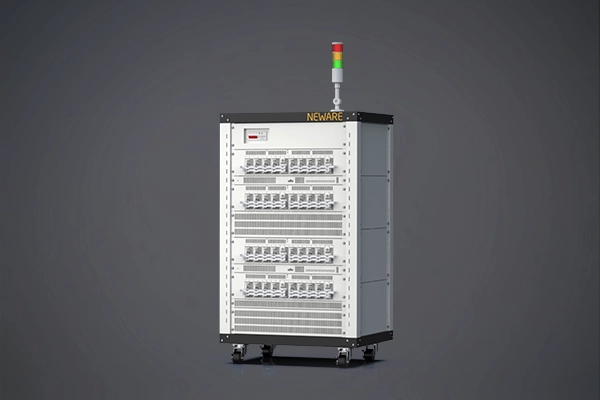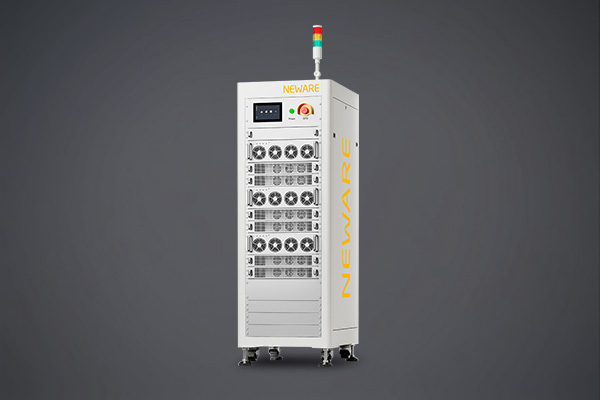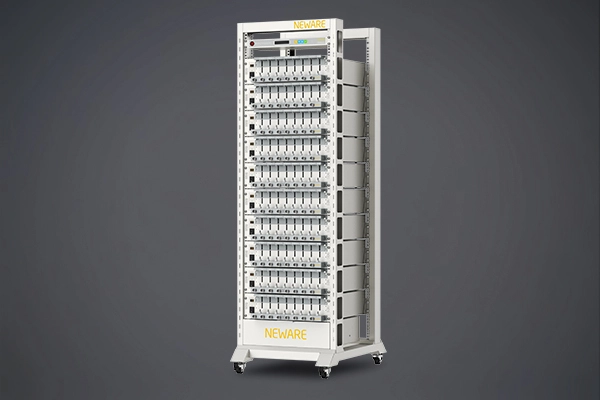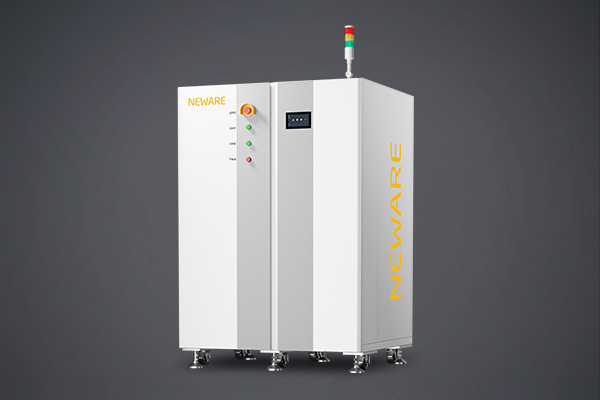When it comes to electrical testing and measurement, precision and reliability are paramount. One of the most overlooked yet crucial components in this domain are alligator clips, also known as crocodile clips. These versatile tools are indispensable for creating temporary electrical connections, and they play a significant role in the testing of batteries, particularly the widely used 18650 lithium batteries. In this article, we will delve into the characteristics of alligator clips, their various applications in battery testing, and how they impact the testing outcomes, using the 18650 lithium battery as a case study.
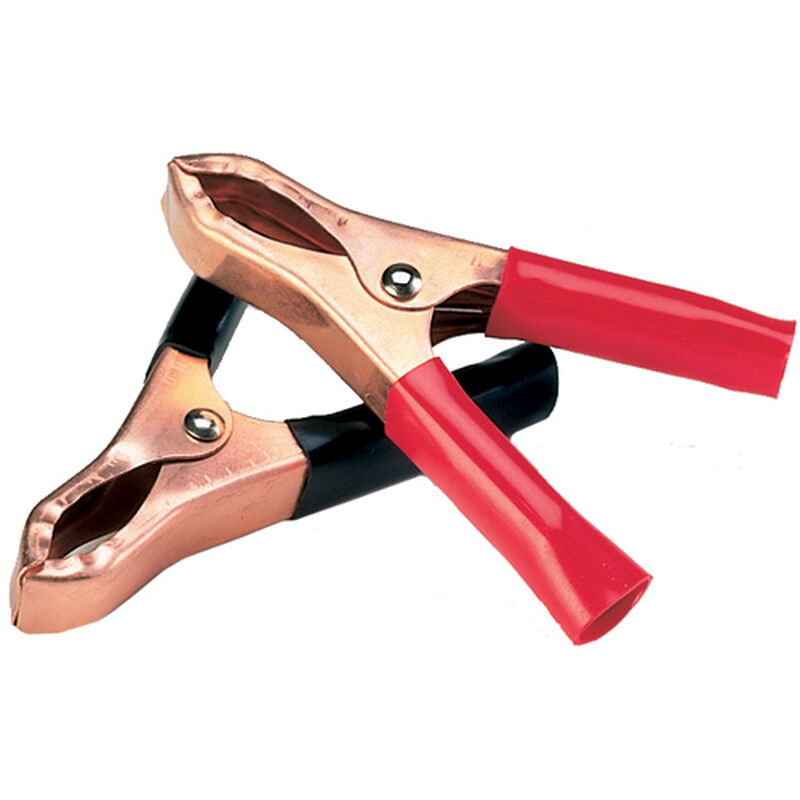
Alligator clips derive their name from their strong, spring-loaded jaws that resemble the snout of an alligator. These jaws are designed to provide a secure, non-slip grip on a variety of surfaces, from thin wires to thick cables. The interlocking teeth ensure a firm connection, which is vital for accurate electrical measurements.
Alligator clips come in different sizes and materials to suit various applications. They are commonly color-coded (red, black, green) to represent different electrical phases or to differentiate between leads in a testing setup. Their maximum jaw opening varies, allowing them to accommodate wires and connectors of different thicknesses.
Before connecting alligator clips, ensure that the battery's positive and negative terminals are clean and free from corrosion. Dirty or corroded contact points can lead to poor electrical connections, which can affect the accuracy of the test results. Make sure to connect the alligator clips to the correct battery polarity. Typically, the red alligator clip is connected to the battery's positive terminal, and the black alligator clip is connected to the negative terminal.
The jaws of the alligator clips should be firmly clamped onto the battery's contact points to ensure a stable electrical connection. A loose connection may result in inaccurate voltage readings. When attaching the alligator clips, ensure that you do not inadvertently connect the positive and negative terminals together, as this could cause a short circuit, potentially damaging the battery or the testing equipment.
Select alligator clips that are the appropriate size for the battery terminals to avoid unstable connections due to clips that are too large or too small. Check the insulation of the alligator clips for any damage to ensure that there is no risk of electrical leakage during the testing process. Always pay attention to safety during the operation, avoiding contact with the metal parts of the alligator clips to prevent the risk of electric shock.
After the test is completed, carefully remove the alligator clips and store the battery and testing equipment properly.
Voltage testing: Attaching to the battery terminals to measure the open-circuit voltage.
Discharge testing: Creating a temporary circuit for discharging the battery to measure its capacity.
Continuity checks: Ensuring there are no breaks in the circuit path.
Resistance measurement: Connecting to a multimeter or specialized tester to gauge internal resistance.
Several factors of alligator clips can affect the accuracy of battery tests:
Contact pressure: Insufficient pressure can lead to poor electrical contact, causing inaccurate readings.So in battery testing, it is crucial to ensure that the alligator clips can provide a stable and firm grip on the test unit.
Material: The clips should be made of corrosion-resistant materials to prevent damage to the battery terminals.
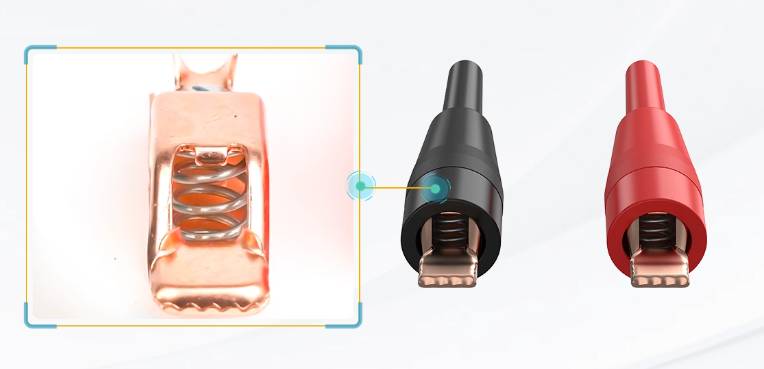
Conductivity: Pure copper is renowned for its exceptional electrical and thermal conductivity, making it an ideal material for crafting alligator clips.
Corrosion resistance: However, pure copper is susceptible to corrosion, especially in humid or sulfur-rich environments.
Applications: It is commonly used for electrical connections that require high conductivity, though it may necessitate surface treatment to enhance corrosion resistance.
Nickel-plated lron alligator clip
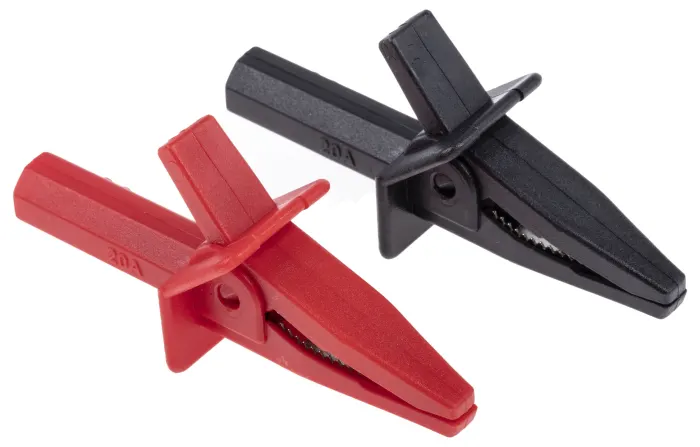
Corrosion resistance: The nickel plating provides good corrosion protection for the iron substrate.
Conductivity: Nickel has good electrical conductivity, which, while not as high as pure copper, is adequate for most applications.
Strength: The iron base ensures mechanical strength and durability of the alligator clip.
Zinc-plated Iron alligator clip
Cost-effectiveness: Zinc-plated iron is a cost-effective option due to its lower price.
Anti-corrosion: The zinc layer prevents rusting of iron, offering basic corrosion protection.
Conductivity: Iron has lower conductivity compared to copper and nickel, and the zinc plating may reduce the conductivity at the contact points.
Copper-plated Iron alligator clip
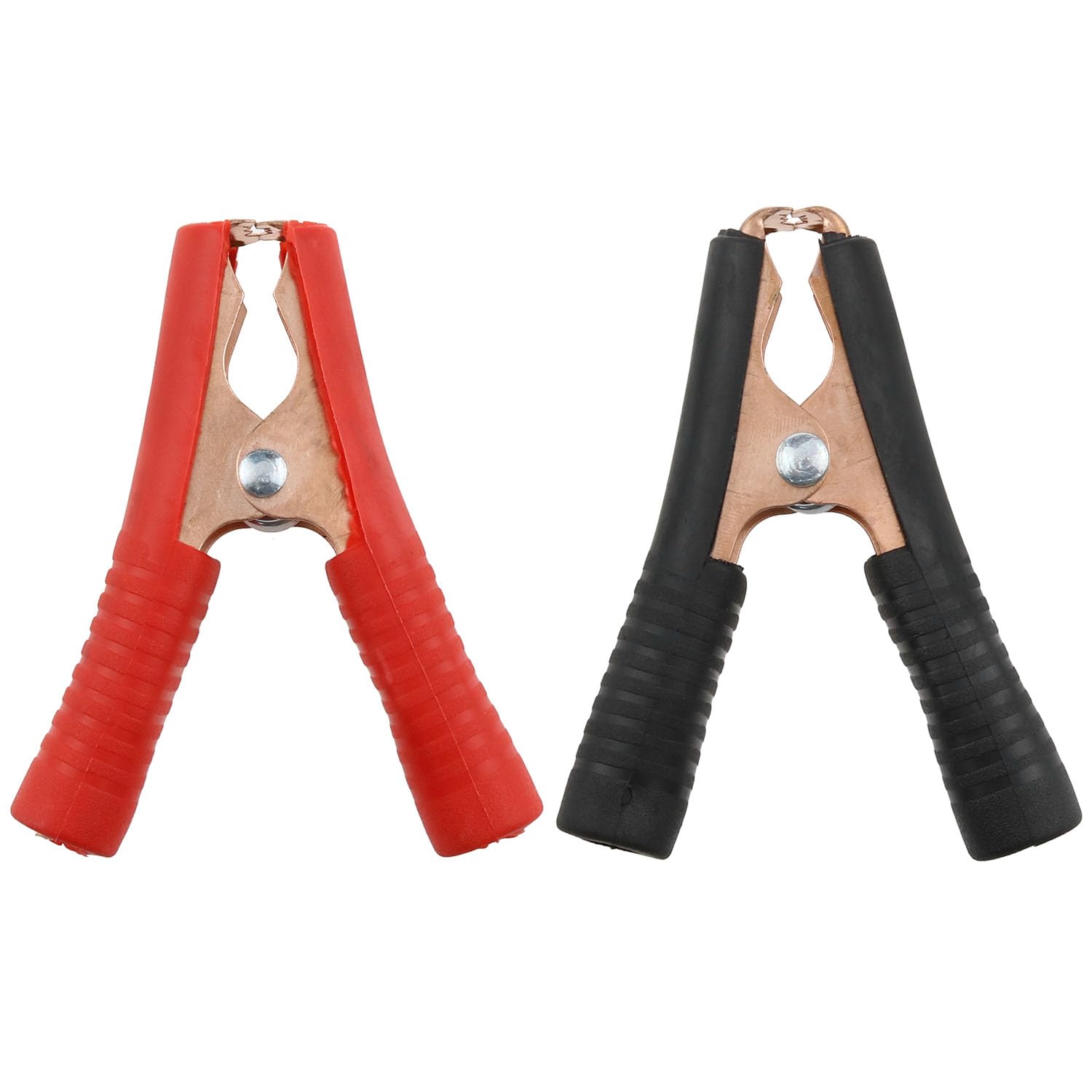
Enhanced conductivity: The copper plating increases the electrical conductivity of iron.
Corrosion resistance: The copper layer also offers a certain degree of corrosion resistance, though not as much as nickel.
Cost: Copper-plated iron provides a balance between cost and performance compared to solid copper.
Brass alligator clip
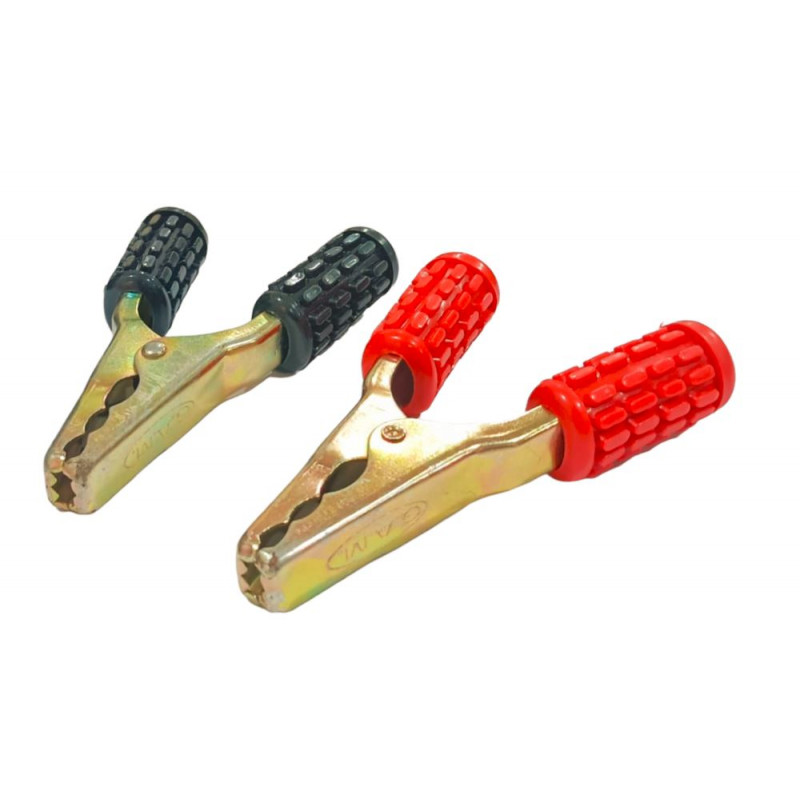
Conductivity: Brass, an alloy of copper and zinc, has good electrical conductivity.
Corrosion resistance: Brass naturally resists a variety of corrosive agents.
Mechanical properties: Brass has better mechanical properties than pure copper.
Non-metallic protective layer alligator clip
Insulation: Non-metallic materials, such as PVC(polyvinyl chloride), are commonly used for the insulating parts of alligator clips to ensure safe operation.
Chemical resistance: These materials typically have good chemical and temperature resistance, making them suitable for various environments.
Safety: The insulating layer prevents accidental electric shocks, enhancing the safety of using alligator clips.
Different materials of alligator clips have distinct focuses in terms of conductivity, corrosion resistance, mechanical strength, cost, current-carrying capacity, and safety. Therefore, the appropriate alligator clips should be selected based on a variety of factors, including experimental requirements, actual environmental conditions, and cost considerations.
Insulation: Proper insulation on the clips prevents short circuits and ensures operator safety.
Size: The clip size must match the battery terminal size to avoid damage or loose connections.
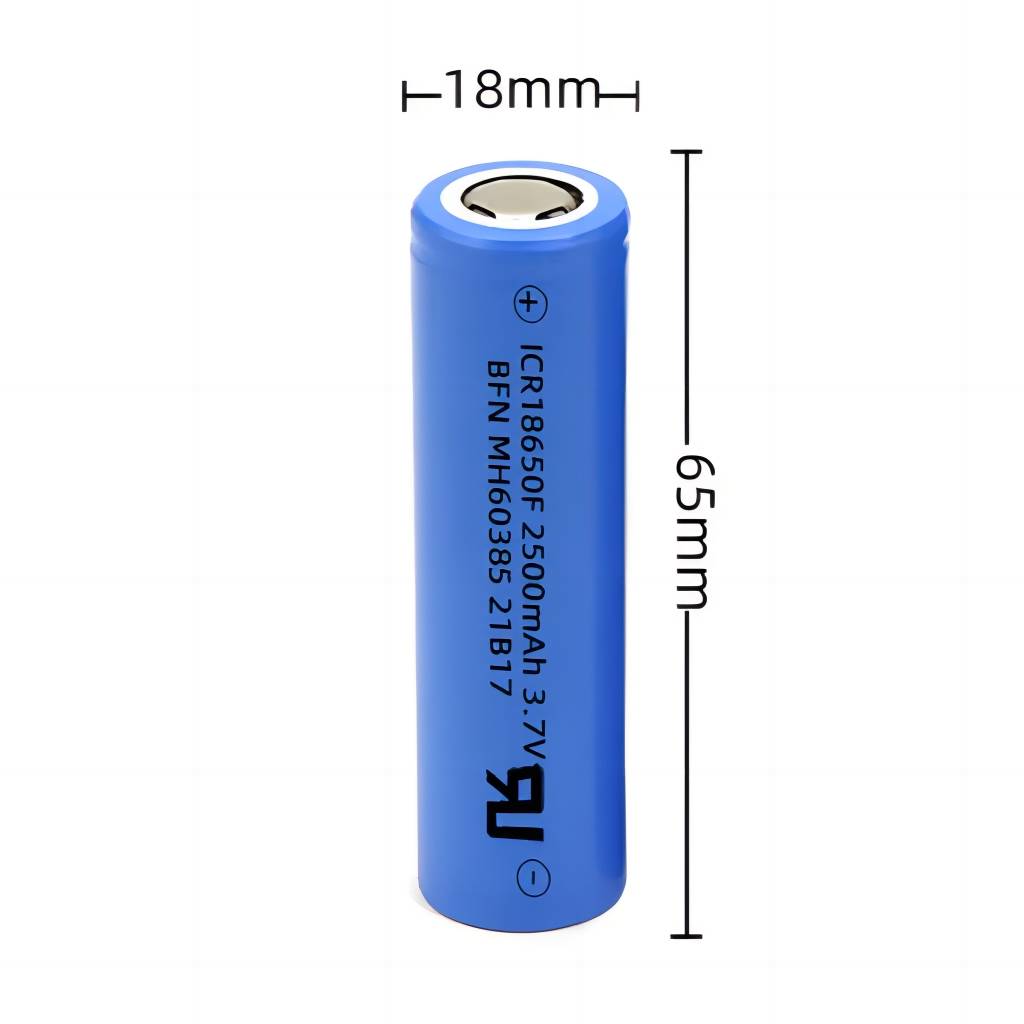
The 18650 lithium battery, a cylindrical battery with a diameter of 18mm and a height of 65mm, is a staple in various applications, from laptops to electric vehicles. A comprehensive battery test for 18650 lithium batteries would include:
Voltage test: The voltage of the battery is measured in a static state using a multimeter or a battery tester. This assessment helps to determine the current state of charge (SOC) of the battery, as the voltage is closely related to its SOC.
Capacity test: The actual capacity of the battery, which is its ability to store electrical energy, is determined by discharging it at a constant current down to a preset low voltage cutoff point and calculating the total charge discharged, typically expressed in milliampere-hours (mAh).
Internal resistance test: The internal resistance of the battery is tested using either the direct current (DC) method or the alternating current (AC) method to measure the battery's inherent resistance. Since internal resistance is an important indicator of the battery's health, a lower resistance generally implies higher charging and discharging efficiency for the battery.
Cycling test: The battery's cycle life is evaluated by subjecting it to multiple charge and discharge cycles and recording the performance changes in each cycle. This test indicates how many charge and discharge cycles the battery can undergo before its performance significantly degrades.
Temperature Test: During the charging and discharging processes, the battery typically experiences changes in its own temperature. Conducting the battery's charge and discharge performance tests at controlled temperatures can help understand the battery's performance and safety. Additionally, temperature testing ensures that the battery does not overheat, thereby preventing damage or safety risks.
Alligator clips are the linchpin in ensuring a secure and reliable connection during battery testing. The integrity of the connection directly impacts the validity of the test results. For instance, during a capacity test, a poor connection could lead to an underestimation of the battery's capacity, while a loose connection during a resistance test could skew the internal resistance readings.
In the intricate process of battery testing, alligator clips are more than just a simple accessory; they are a fundamental component that ensures the accuracy and reliability of test outcomes. When selecting alligator clips for battery testing, it is essential to consider their contact pressure, material, insulation, and size to guarantee precise and safe measurements. As the demand for reliable and efficient energy storage solutions grows, the role of alligator clips in battery testing will continue to be as crucial as the batteries themselves.
NEWARE TECHNOLOGY LLC
755 Ames Avenue, Milpitas, CA, USA, 95035






